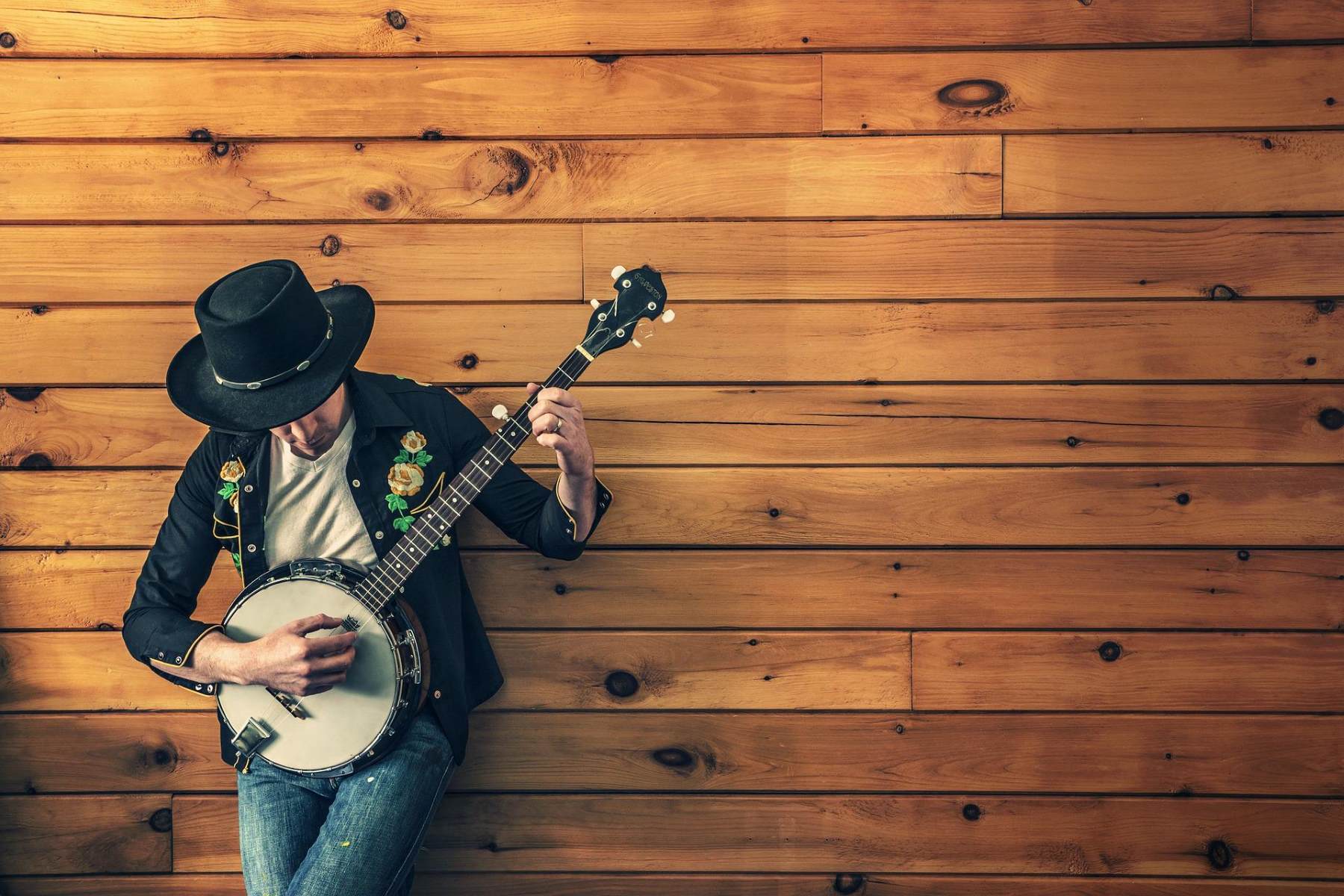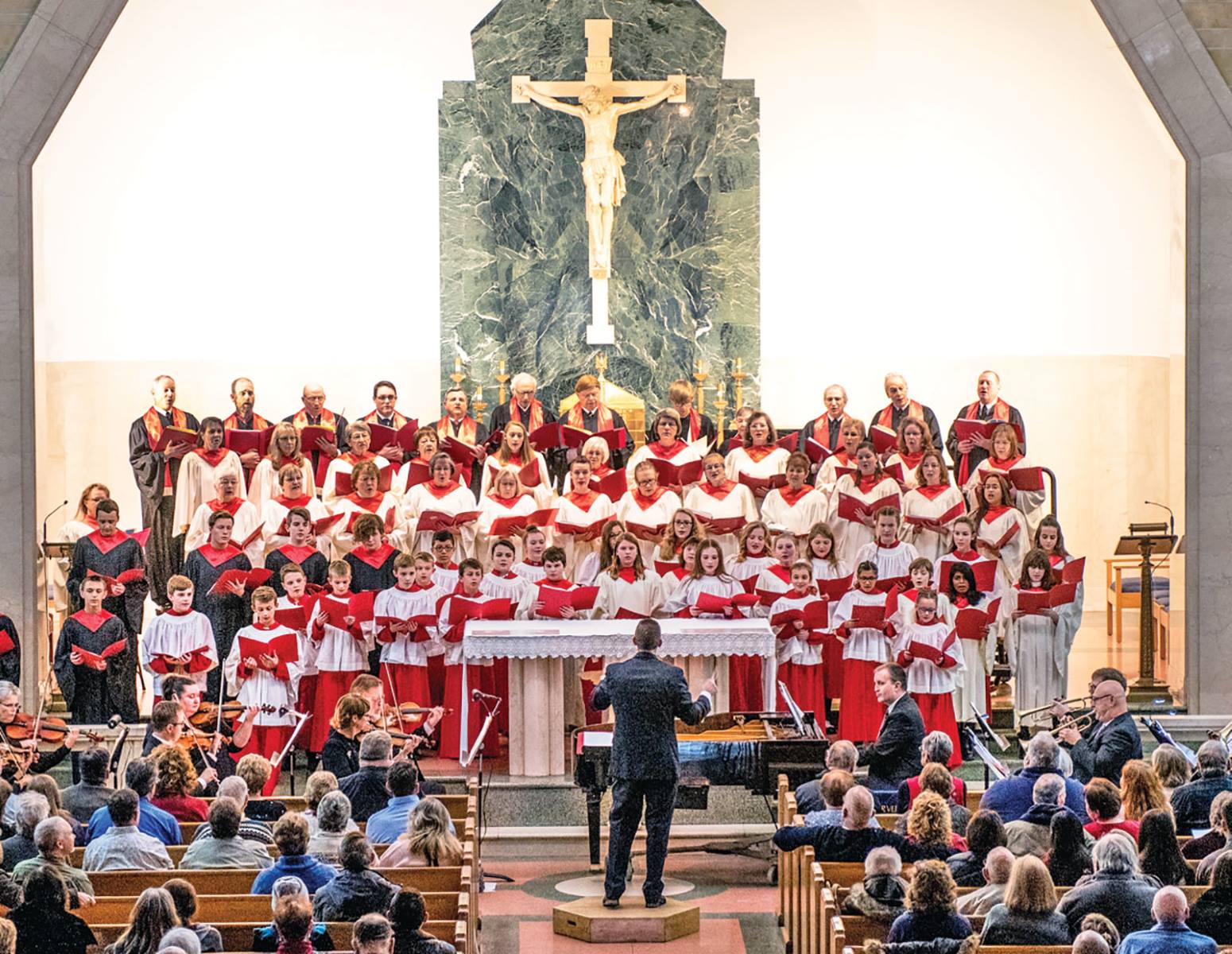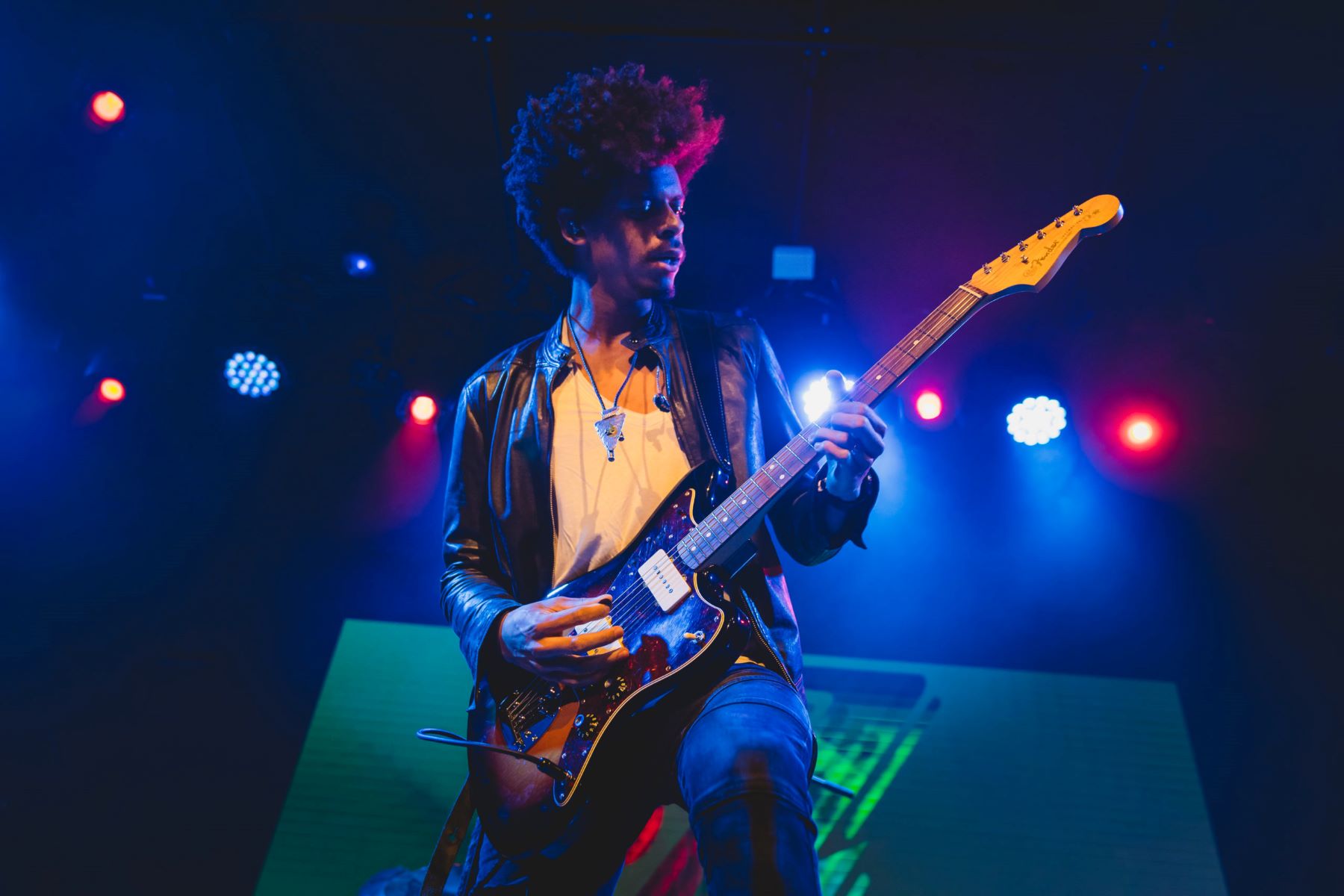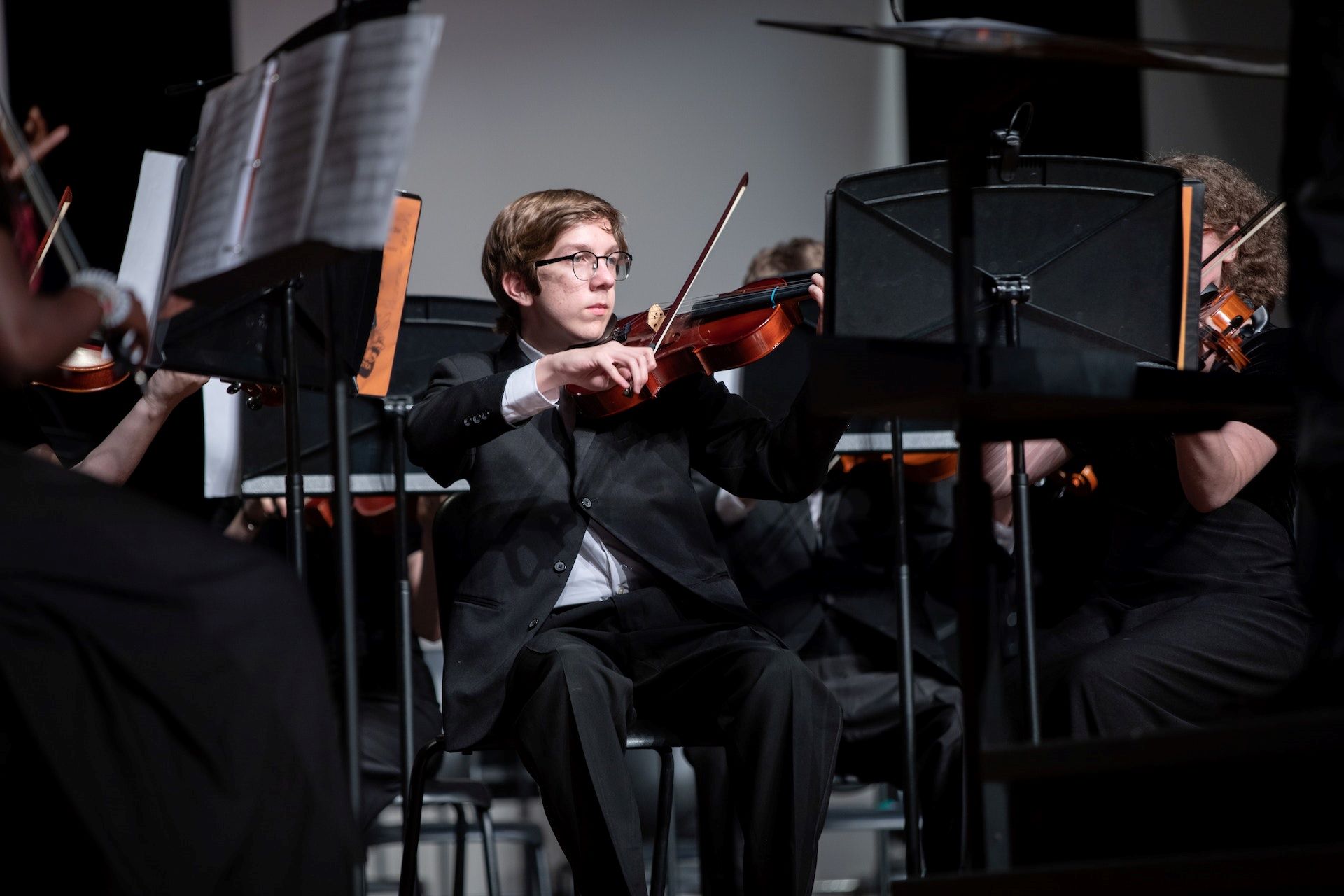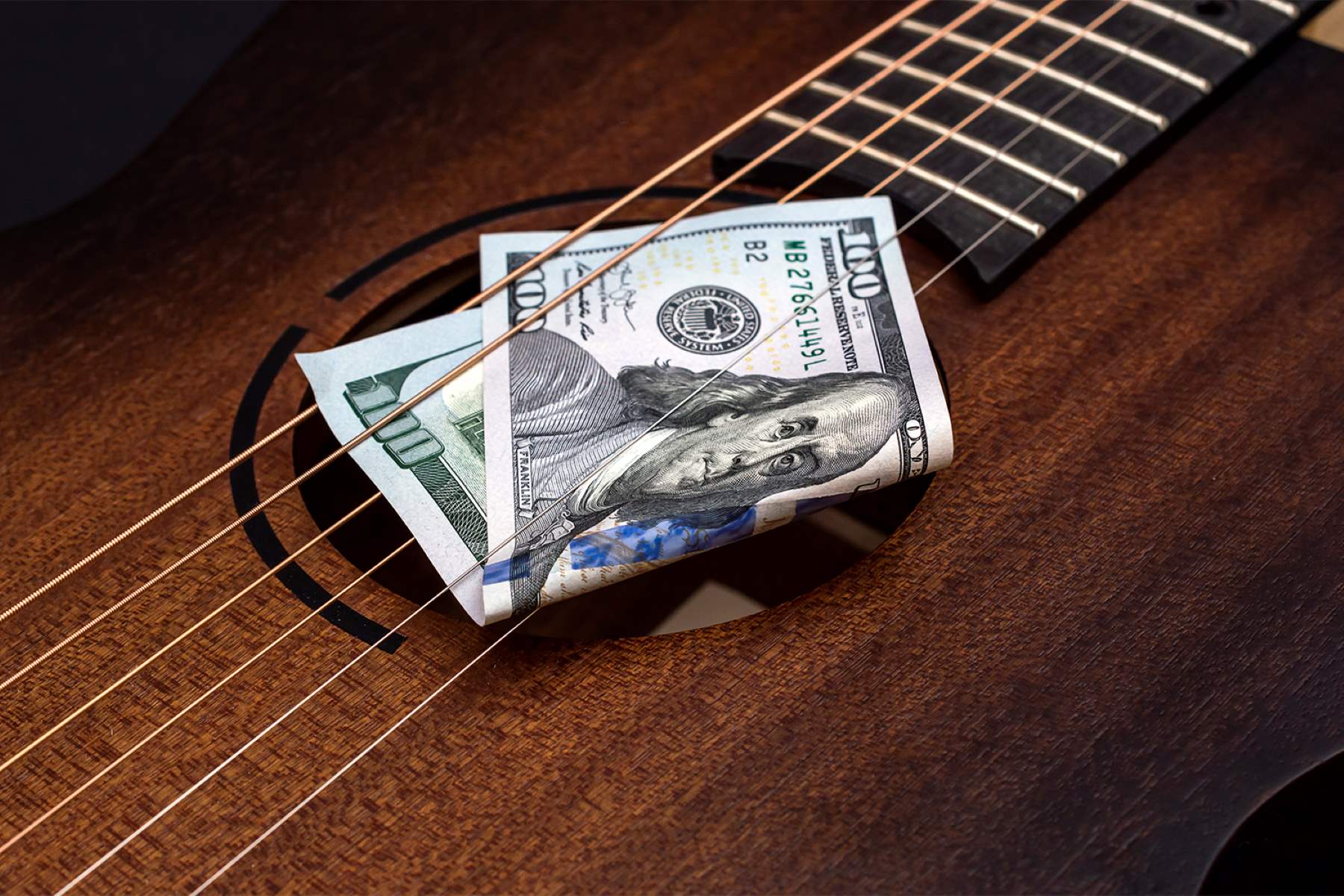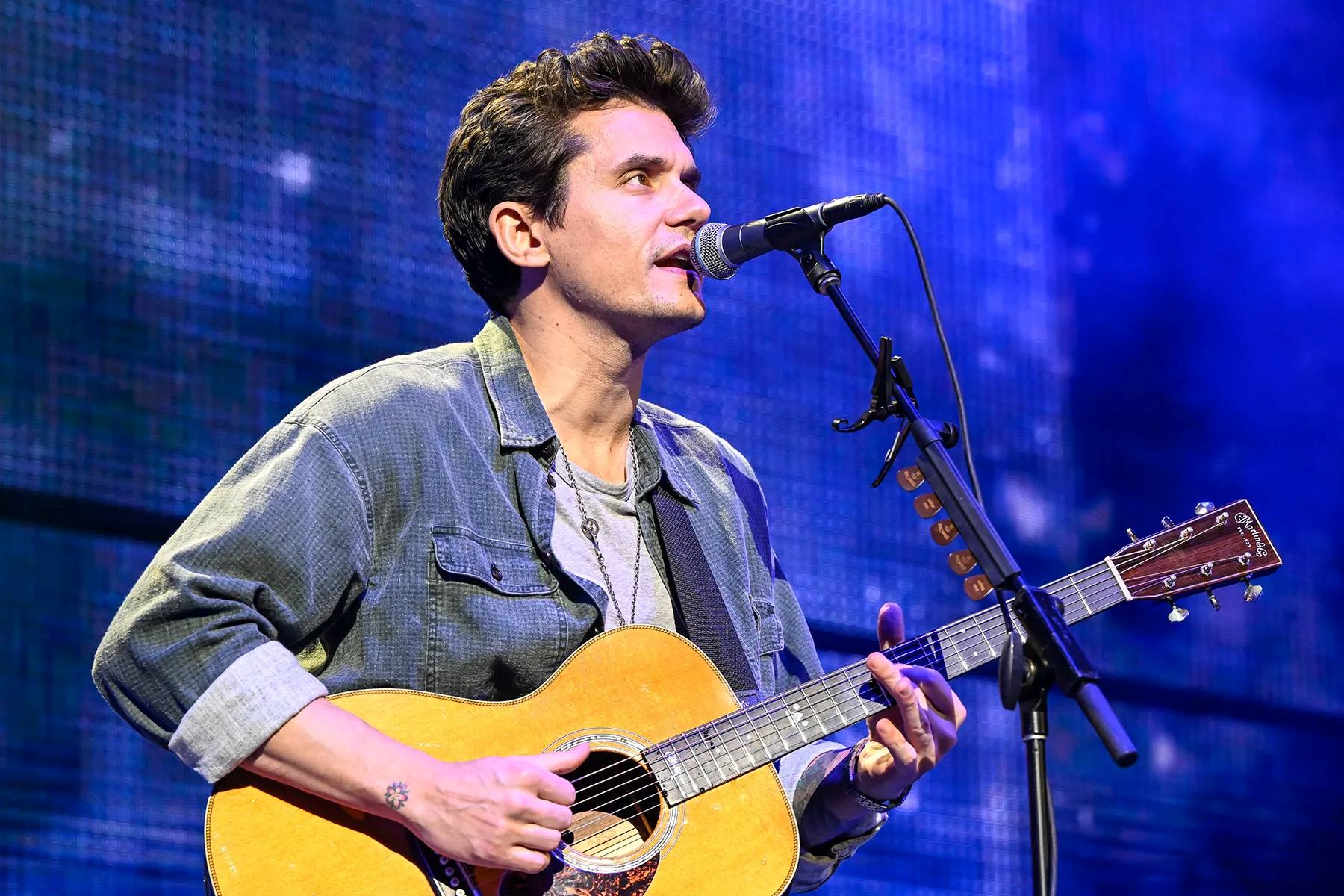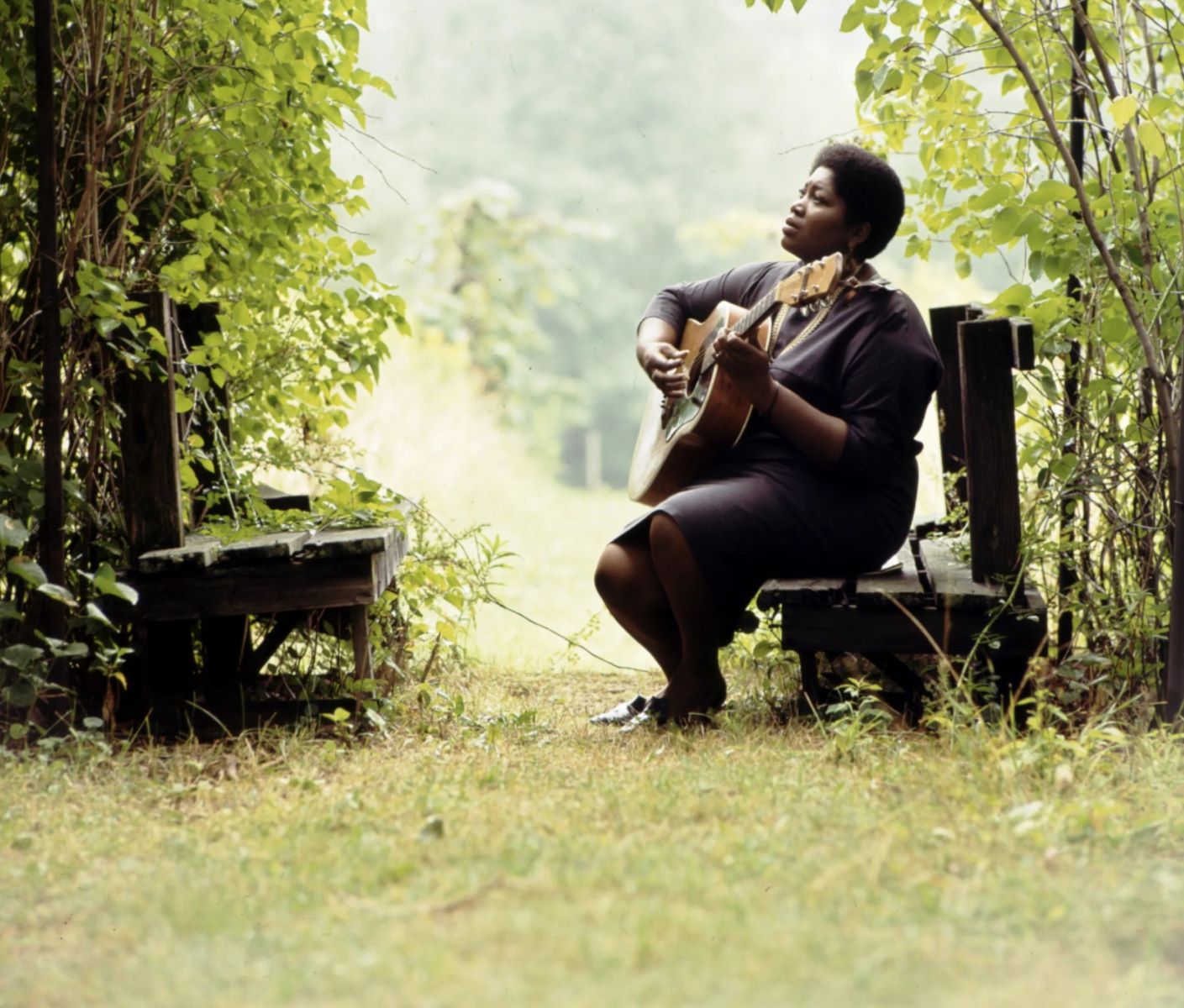Home>Production & Technology>Musician>How To Get Noticed As A Musician
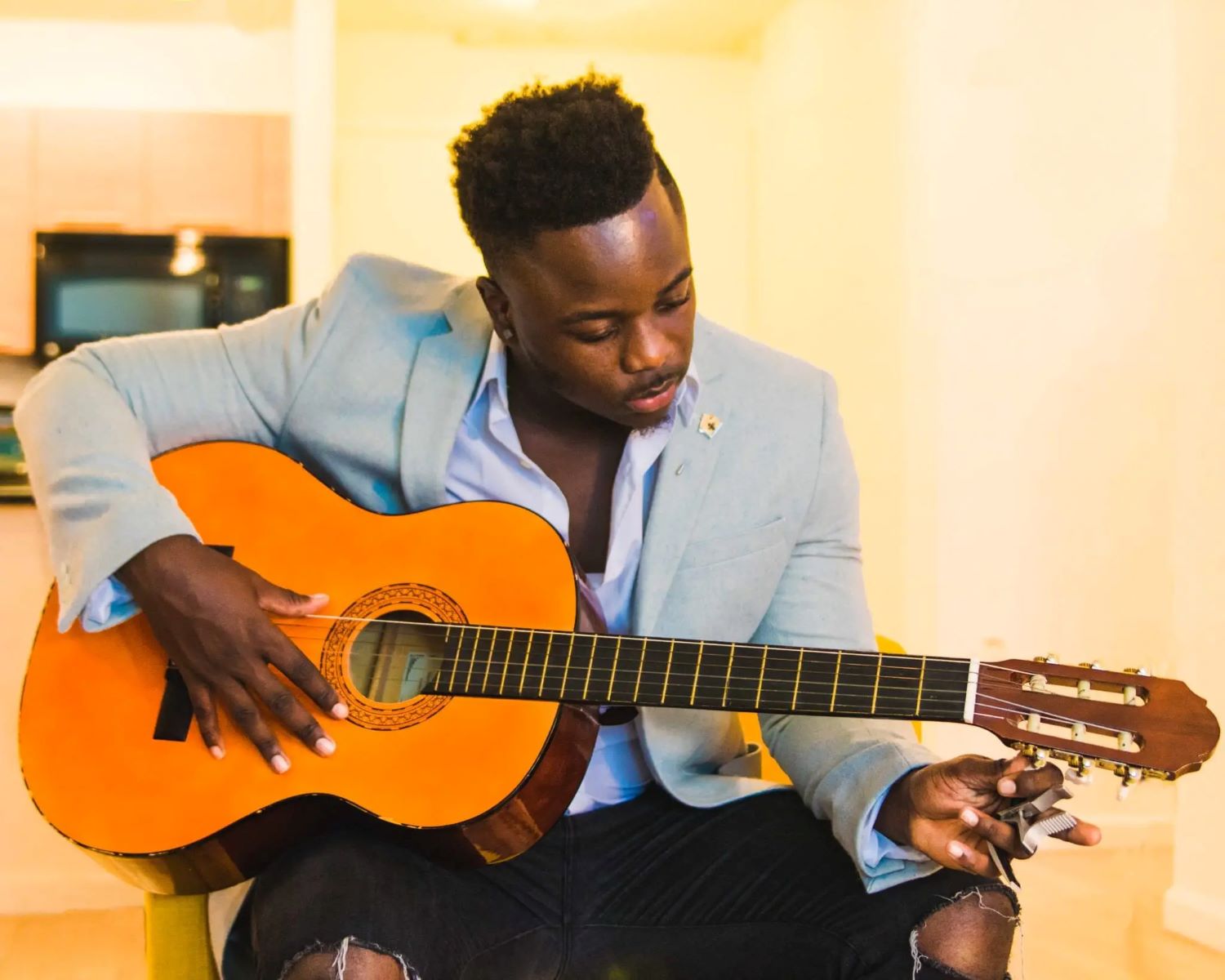

Musician
How To Get Noticed As A Musician
Modified: March 9, 2024
Learn effective strategies on how to get noticed as a musician and stand out in the competitive music industry. Boost your career and gain recognition as a talented musician.
(Many of the links in this article redirect to a specific reviewed product. Your purchase of these products through affiliate links helps to generate commission for AudioLover.com, at no extra cost. Learn more)
Table of Contents
- Introduction
- Building Your Online Presence
- Utilizing Social Media Platforms
- Creating Engaging Content
- Networking and Collaborating with Other Musicians
- Performing Live and Getting Gig Opportunities
- Submitting Your Music to Blogs and Playlists
- Releasing Music on Streaming Platforms
- Seeking Press and Media Coverage
- Building a Strong Fanbase through Fan Engagement
- Conclusion
Introduction
Welcome to the world of music! As a musician, one of your biggest goals is to get noticed and make a mark in the industry. Whether you’re just starting out or looking to take your career to the next level, building your online presence, networking with fellow artists, and engaging with fans are all key components of gaining recognition as a musician.
In today’s digital age, the power of the internet and social media cannot be underestimated. With the right strategies, you can amplify your music and reach a wider audience than ever before. This article will guide you through the steps to become a noticed musician, providing valuable insights and practical tips to help you stand out from the crowd.
First and foremost, it’s essential to build a strong online presence. This means creating and maintaining a professional and engaging website that showcases your music, bio, and upcoming events. Your website should be visually appealing, easy to navigate, and optimized for mobile devices.
In addition to your website, make sure to harness the power of social media platforms. Facebook, Instagram, Twitter, and YouTube can be valuable tools for connecting with fans, sharing updates, and promoting your music. Regularly post engaging content, such as behind-the-scenes footage, live performances, and snippets of new music. Interact with your followers by responding to comments and messages, fostering a sense of community and loyalty.
Creating high-quality and engaging content is crucial for capturing the attention of your audience. In addition to sharing music videos and performances, consider creating vlogs, tutorials, or even a podcast where you discuss your musical journey and share insights into your creative process. This not only gives fans a deeper connection to your music but also establishes you as a knowledgeable and relatable artist.
Networking and collaborating with other musicians can significantly boost your visibility and open up new opportunities. Attend local music industry events, join online forums and communities, and reach out to other artists for potential collaborations. By leveraging each other’s fan bases and skills, you can create mutually beneficial partnerships and expand your reach.
While online presence is essential, don’t underestimate the power of live performances. Seek out gig opportunities at local venues, festivals, and events. Perform your music with passion and energy, leaving a lasting impression on the audience. Engage with fans after the show, and don’t be afraid to network with industry professionals who may be in attendance.
In addition to live performances, getting your music featured on blogs and playlists can expose your content to a wider audience. Research relevant music blogs and playlists that align with your style, and submit your music for consideration. Be sure to personalize your pitches and highlight why your music would be a great fit for their platform.
Streaming platforms have become the go-to method for many people to discover and listen to music. Make sure your music is available on popular platforms such as Spotify, Apple Music, and SoundCloud. Utilize platforms like Spotify for Artists to gain insights into your audience and track your growth.
Seeking press and media coverage can help generate buzz around your music and increase your visibility. Reach out to local newspapers, magazines, and online music publications. Craft a compelling press release and offer exclusive interviews or previews to entice journalists and bloggers to write about you.
Last but not least, building a strong fanbase through fan engagement is vital for long-term success. Interact with your fans on social media, reply to their comments, and make them feel valued. Organize contests, giveaways, and exclusive fan events to reward their support. The more engaged and loyal your fanbase, the more they will advocate for your music and help spread the word.
Remember, getting noticed as a musician takes time, effort, and persistence. By building your online presence, creating engaging content, networking with other musicians, performing live, seeking media coverage, and nurturing your fanbase, you can make significant strides towards achieving your goals. Stay dedicated to your craft, and never stop pursuing your passion.
Building Your Online Presence
In today’s digital age, having a strong online presence is crucial for musicians to get noticed and connect with their audience. Here are some key steps to build an effective online presence:
- Create a Professional Website: Your website serves as the hub of your online presence. Make sure it is visually appealing, easy to navigate, and optimized for mobile devices. Include a bio, discography, upcoming events, and links to your social media profiles. Regularly update your website with fresh content to keep fans engaged.
- Harness Social Media Platforms: Social media platforms like Facebook, Instagram, Twitter, and YouTube are powerful tools for building a fanbase and promoting your music. Create profiles on these platforms and regularly post engaging content. Use your social media presence to interact with fans, share updates, and promote upcoming events.
- Regularly Release New Music: Keep your audience engaged by regularly releasing new music. This can be in the form of singles, EPs, or albums. Utilize streaming platforms like Spotify, Apple Music, and SoundCloud to distribute your music and gain exposure. Consider offering exclusive releases or bonus content to fans who sign up for your email list.
- Engage with Fan Feedback: Interact with your fans on social media and other platforms. Respond to comments, messages, and emails. Show appreciation for their support and make them feel valued. This fan engagement is essential for building a loyal and passionate fanbase.
- Showcase Your Music and Performances: Use your online presence to showcase your music and performances. Share high-quality music videos, live recordings, and behind-the-scenes footage. This gives your audience a chance to connect with your music on a deeper level and creates anticipation for future releases and shows.
- Optimize Your Online Presence for SEO: Utilize search engine optimization (SEO) techniques to improve your visibility in search engine results. Conduct keyword research to find out what terms and phrases potential fans may be searching for, and incorporate those keywords into your website content and social media posts. This will help increase your chances of being discovered by new fans.
- Cultivate Your Email List: Building an email list allows you to directly communicate with your fans. Offer incentives, such as exclusive content or early access to new releases, in exchange for email sign-ups. Send regular updates, newsletters, and special offers to keep your fans engaged and informed.
Remember, building your online presence is an ongoing process. Consistency and quality are key. Regularly update your website and social media profiles with fresh content. Engage with your audience, respond to their feedback, and show your appreciation for their support. By leveraging the power of the internet and optimizing your online presence, you can significantly increase your chances of getting noticed as a musician.
Utilizing Social Media Platforms
Social media platforms have revolutionized the way musicians connect with their audience. By utilizing these platforms effectively, you can increase your visibility, engage with fans, and promote your music. Here are some key strategies to make the most of social media:
- Choose the Right Platforms: There are numerous social media platforms available, but it’s important to focus on those that align with your target audience. Platforms like Facebook, Instagram, Twitter, and YouTube are popular choices for musicians. Research which platforms your target audience is active on and prioritize your efforts there.
- Create a Consistent Brand: Your social media profiles should reflect your brand as a musician. Use consistent visuals, such as profile pictures and header images, that align with your overall image. Develop a unique voice and tone in your posts to build a recognizable and authentic brand presence.
- Post Engaging Content: Regularly post content that resonates with your audience. Share updates about your music, upcoming shows, and behind-the-scenes moments. Be creative and experiment with different content types, such as videos, photos, and live streams. Encourage your fans to interact with your posts by asking questions, running contests, or offering exclusive content.
- Interact with Your Audience: Social media is all about building connections. Take the time to interact with your fans by responding to comments, messages, and mentions. Show appreciation for their support and engage in conversations. This personal interaction strengthens your bond with your audience and fosters a loyal fanbase.
- Utilize Hashtags: Hashtags can help increase the discoverability of your posts. Research relevant and trending hashtags in the music industry and include them in your posts. This can help you reach a wider audience and connect with fans who are interested in similar music.
- Collaborate with Other Artists: Partnering with other musicians on social media can be beneficial for both parties. Cross-promote each other’s music, share each other’s content, and collaborate on projects. This not only exposes your music to a new audience but also helps build relationships with fellow musicians.
- Utilize Paid Advertising: Social media platforms offer targeted advertising options that allow you to reach a specific audience. Consider investing in paid advertising to promote your music, upcoming shows, or special releases. Set clear goals and target your ads effectively to maximize your marketing efforts.
Remember, social media is constantly evolving, and it’s essential to stay up to date with platform changes and trends. Regularly analyze your social media analytics to understand what type of content resonates most with your audience and adjust your strategy accordingly. By utilizing social media platforms effectively, you can build a strong online presence, connect with fans, and gain recognition as a musician.
Creating Engaging Content
Creating compelling and engaging content is essential for capturing the attention of your audience and standing out as a musician. When done well, it can increase your visibility, build a loyal fanbase, and help you get noticed in a crowded industry. Here are some effective strategies for creating engaging content:
- Showcase Your Music: Your music is the heart of your content. Share high-quality recordings, music videos, and live performances to showcase your talent. Consider releasing singles or snippets of upcoming songs to build anticipation and engage your audience.
- Share Behind-the-Scenes Moments: Take your fans behind the curtain by offering glimpses into your creative process, rehearsals, and recording sessions. This gives your audience a deeper connection to your music and allows them to feel part of your journey.
- Create Engaging Videos: Videos are a powerful way to engage your audience. Consider creating vlogs, tutorials, covers, or even funny skits related to music. Experiment with different video formats and styles to find what resonates best with your audience.
- Run Contests and Giveaways: Contests and giveaways are a great way to generate excitement and foster engagement. Offer prizes such as merchandise, concert tickets, or exclusive experiences. Encourage fans to participate by sharing and tagging their friends, which helps expand your reach.
- Provide Exclusive Content: Reward your most loyal fans with exclusive content. This can include unreleased songs, acoustic performances, or early access to new releases. Offering something special to your dedicated fans makes them feel valued and strengthens their connection to your music.
- Share Your Story: People love hearing personal stories. Share your musical journey, inspirations, and challenges you’ve faced along the way. Authentic storytelling helps fans connect with you on a deeper level and cultivates a more meaningful relationship.
- Engage with User-Generated Content: Encourage your fans to create content related to your music. Repost their covers, dance routines, or artwork. This not only shows appreciation for their support but also fosters a sense of community among your fans.
- Host Live Streams: Utilize platforms like Facebook Live, Instagram Live, or YouTube Live to connect with your audience in real-time. Host live Q&A sessions, acoustic performances, or behind-the-scenes streams. This interactive format allows you to engage directly with fans and build a more personal connection.
When creating content, always keep your target audience in mind. Understand what they enjoy, what resonates with them, and what platforms they prefer. Experiment with different types of content and analyze the feedback and engagement you receive. Consistency, quality, and authenticity are key to creating engaging content that captivates your audience and helps you get noticed as a musician.
Networking and Collaborating with Other Musicians
In the music industry, networking and collaborating with other musicians can be instrumental in expanding your reach, gaining exposure, and creating valuable connections. Here are some strategies to effectively network and collaborate with other musicians:
- Attend Music Industry Events: Attend local music industry events, workshops, conferences, and showcases. These events provide opportunities to meet fellow musicians, industry professionals, and potential collaborators. Strike up conversations, exchange contact information, and learn from others in the industry.
- Join Online Communities and Forums: Participate in online music communities and forums to connect with musicians from around the world. Engage in discussions, share your knowledge, and seek collaborations. Virtual collaboration offers a unique opportunity to work with artists regardless of geographic location.
- Reach Out to Artists: Don’t be afraid to reach out to artists you admire or see potential for collaboration. Send a professional and personalized message expressing your interest in working together. Highlight common interests or mutual benefits and discuss potential ideas for collaboration.
- Collaborate on Music Projects: Collaborate on music projects with other musicians. This could involve writing and recording together, remixing each other’s tracks, or featuring on each other’s songs. Collaborations introduce you to new audiences and expand your creative horizons.
- Share Each Other’s Music: Show support for other musicians by sharing their music on your social media platforms or including their tracks in playlists. By cross-promoting one another, you can introduce your respective fanbases to new music and gain exposure to potential fans.
- Live Performances and Jam Sessions: Collaborate with other musicians by performing live together or organizing jam sessions. These interactive experiences allow for spontaneity and musical exploration. They also create opportunities for joint performances, where you can showcase your individual talents as well as the synergy of the collaboration.
- Collaborate on Videos: Create collaborative music videos with other musicians. This not only adds visual appeal to your music but also exposes both artists’ fanbases to each other. By combining creative forces, you can create unique and engaging content that stands out in a saturated market.
- Explore Sync and Licensing Opportunities: Collaborate with other musicians for sync and licensing opportunities. This involves creating music specifically for TV shows, films, commercials, or other media. Collaborating with other musicians increases your chances of getting noticed by industry professionals and securing placement opportunities.
When networking and collaborating, it’s important to approach these relationships with respect, professionalism, and a genuine interest in the other artist’s work. Be open to different styles and perspectives, and be willing to contribute your own unique talents and ideas. Collaborating allows you to learn from others, expand your musical horizons, and create mutually beneficial connections that can propel your career forward.
Performing Live and Getting Gig Opportunities
Performing live is an essential part of a musician’s journey and can provide valuable exposure and growth opportunities. Here are some strategies to help you secure gig opportunities and make the most of your live performances:
- Local Venue Circuit: Start by performing at local venues that showcase live music. Research and reach out to bars, clubs, cafes, and restaurants that host live music events. Attend open mic nights and showcase your talent to potential bookers and venue owners.
- Networking with Other Musicians: Connect with other musicians in your local music scene. Attend local concerts and events, and build relationships with artists who are already established in the community. Collaborating or performing alongside them can provide exposure to their existing fanbase and open doors to new opportunities.
- Online Gig Platforms: Explore online gig platforms where you can find opportunities to perform remotely or in different locations. Platforms like GigSalad, GigMasters, and Bandzoogle can connect you with potential clients and event organizers seeking live music acts.
- Submit to Music Festivals: Research and submit your music to music festivals that align with your genre and style. Festivals often have open call submissions for bands and artists looking for performance slots. Participating in festivals can expose your music to a larger audience and potentially attract industry professionals.
- Collaborate with Event Organizers: Reach out to event organizers, such as charity fundraisers, community gatherings, or cultural festivals, and offer to perform at their events. Collaborating with organizers can lead to recurring gigs and establish you as a reliable and talented performer in the local community.
- Support Other Artists: Offer to be an opening act for established artists or bands touring in your area. This not only exposes you to a larger audience but also provides an opportunity to gain experience performing in different venues and learn from more seasoned musicians.
- Curate Your Setlist: Tailor your setlist to the particular venue and audience. Consider the ambiance, style, and preferences of the venue’s regular clientele. Engaging the audience with a well-curated mix of originals, crowd favorites, and carefully selected cover songs can leave a lasting impression and increase the chances of getting rebooked.
- Promote Your Shows: Use social media, your website, and email newsletters to promote your upcoming shows. Engage with your fans and ask them to spread the word. Create eye-catching posters and flyers to share in local music stores, cafes, and community boards.
- Deliver Memorable Performances: Give your all during every live performance. Engage with the audience, show your passion, and create an unforgettable experience. Connect with fans after your set, sign merchandise, and make an effort to build relationships with attendees. This personal touch can turn casual listeners into loyal supporters.
Remember, landing gig opportunities takes perseverance and a willingness to put yourself out there. Even if you face rejections or smaller gigs initially, each performance is a chance to improve your skills and gain exposure. As you establish a reputation as a reliable and talented performer, more opportunities will come your way. So keep honing your craft, networking, and delivering memorable live performances – the right gig opportunities will follow.
Submitting Your Music to Blogs and Playlists
Getting your music featured on blogs and playlists is a powerful way to reach a wider audience, gain credibility, and increase your visibility as a musician. Here are some strategies to effectively submit your music to blogs and playlists:
- Research Relevant Blogs and Playlists: Take the time to research and identify blogs and playlists that align with your genre, style, and target audience. Look for platforms that regularly feature new music and have an engaged and active following.
- Personalize Your Submissions: When submitting your music, personalize your pitches to each blog or playlist curator. Show that you have taken the time to understand their platform and explain why your music would be a great fit. Highlight any unique aspects of your music that would appeal to their audience.
- Create a Professional Press Kit: Having a professional and well-crafted press kit enhances your chances of getting noticed by bloggers and playlist curators. Include a short bio, high-quality press photos, links to your music, and any notable achievements or reviews. Make it easy for them to access and showcase your music.
- Follow Submission Guidelines: Pay attention to any submission guidelines provided by the blogs or playlist curators. They may have specific instructions on how to submit your music, preferred file formats, or required metadata. Following these guidelines shows professionalism and increases your chances of being considered.
- Engage with the Blogs and Playlists: Prior to submitting, engage with the blogs and playlists on social media. Like, comment, and share their content. Start building a relationship with the curators by showing genuine interest and support for their platform. This can increase your chances of being noticed and considered for features.
- Offer Exclusive Content: To entice bloggers and playlist curators, offer them exclusive content. This can include unreleased songs, acoustic versions, remixes, or live recordings. Providing exclusive content gives them something unique to share with their audience and helps create a sense of value in featuring your music.
- Build Relationships: Building relationships with bloggers and playlist curators is important for long-term success. Engage with them regularly on social media, provide feedback on their featured music, and show support for their work. Cultivating these relationships can lead to future collaborations and features.
- Follow up: If you don’t hear back after submitting your music, don’t be discouraged. Follow up politely after a reasonable amount of time to inquire about the status of your submission. Express gratitude for their consideration and ask for any feedback or suggestions for improvement.
- Explore Independent Music Promotion Platforms: Consider using independent music promotion platforms that specialize in connecting artists with bloggers and playlist curators. These platforms often have established relationships and can streamline the submission process, increasing your chances of getting featured.
Remember, the music industry is highly competitive, and getting featured on blogs and playlists may take time and persistence. Be strategic in targeting the right outlets, personalize your submissions, and build meaningful relationships with curators. Keep improving your craft, engage with your audience, and leverage the power of music promotion platforms to maximize your chances of getting your music recognized and featured.
Releasing Music on Streaming Platforms
Releasing your music on streaming platforms is a crucial step in reaching a global audience and gaining recognition as a musician. Streaming platforms such as Spotify, Apple Music, and SoundCloud have become the primary way people discover and consume music. Here’s how to effectively release your music on these platforms:
- Choose the Right Distribution Service: Select a reputable digital music distributor to get your music onto streaming platforms. Platforms like DistroKid, TuneCore, and CD Baby can help you upload your music and handle the distribution process.
- Prepare Your Music Files: Make sure your music is properly mixed, mastered, and saved in the required file format for distribution. Ensure that your songs have appropriate metadata, including track titles, artist name, album art, and release date.
- Plan the Release Strategy: Decide on a release date and plan your pre-release and post-release activities. Consider creating buzz by teasing snippets of your music on social media, sharing behind-the-scenes content, or offering exclusive content to your fans leading up to the release.
- Create Eye-catching Album Artwork: Your album artwork is often the first thing potential listeners will see. Design eye-catching and visually appealing artwork that reflects the mood and style of your music. Make sure it meets the required specifications for each streaming platform.
- Write Engaging Artist and Song Descriptions: Craft compelling descriptions that captivate listeners and accurately represent your music. Provide interesting insights into your creative process, influences, and the story behind each song. These descriptions can help spark interest and curiosity among potential listeners.
- Promote Your Release: Use your social media platforms, website, and mailing list to promote your upcoming release. Tease snippets of your songs, create lyric videos, or share behind-the-scenes footage to generate excitement among your fans. Encourage them to pre-save or pre-order your music to boost your first-week streaming numbers.
- Create Playlists and Collaborative Opportunities: Take advantage of platform features that allow you to create playlists and collaborate with other artists. Curate playlists that include your songs alongside similar artists to attract new listeners. Collaborate with other musicians on remixes or featured tracks to expand your reach and gain exposure to their fanbase.
- Engage with Your Audience: Actively engage with your audience after releasing your music. Respond to comments, encourage listeners to share their thoughts and experiences with your music, and show your appreciation for their support. Building a relationship with your fans can lead to loyal and active supporters who will help spread the word about your music.
- Monitor and Analyze Streaming Data: Most streaming platforms provide analytics and insights into your audience, including where your listeners are located, which songs are popular, and how your music is being discovered. Use this data to understand your audience better, tailor your promotional efforts, and make informed decisions in your future releases and marketing strategies.
Remember, releasing music on streaming platforms is an ongoing process. Continuously promote your music, engage with your audience, and leverage the power of streaming analytics to refine your strategies. By making your music available on popular streaming platforms and promoting it effectively, you can significantly increase your chances of reaching a wider audience and gaining recognition as a musician.
Seeking Press and Media Coverage
Press and media coverage can amplify your music, enhance your credibility, and introduce you to new audiences. Here are some strategies to effectively seek press and media coverage:
- Research Relevant Media Outlets: Identify media outlets that cover music in your genre or target audience. Look for newspapers, magazines, online blogs, podcasts, radio stations, and local TV shows that feature emerging artists.
- Craft a Compelling Press Release: Write a well-crafted press release that highlights your music, your story, and any notable achievements or upcoming releases. Think of it as a persuasive pitch to grab the attention of journalists and media professionals. Include a captivating headline, a concise summary, and contact information for further inquiries.
- Personalize Your Pitches: Tailor your pitches to each media outlet you’re targeting. Show that you’ve done your research by mentioning specific articles or features they’ve done. Explain why your music or story would be a relevant and valuable addition to their platform.
- Build Relationships: Establish relationships with journalists, bloggers, and influencers in your niche. Engage with their content on social media, share their articles, and provide genuine feedback. This interaction organically builds connections and makes it more likely for them to consider covering your music in the future.
- Offer Exclusive Interviews or Previews: Extend exclusive interview opportunities to journalists or bloggers who have shown interest in your work. This could be in the form of written interviews, video interviews, or private listening sessions. Exclusive content provides an incentive for media professionals to feature your music.
- Submit Your Music for Reviews: Research music review sites or publications that accept submissions. Follow their submission guidelines and send them your music along with a brief description or press release. Be prepared to receive both positive and constructive feedback, which can help you improve as an artist.
- Build an Online Press Kit: Create a well-designed, easily accessible online press kit that includes your bio, high-resolution press photos, music samples, and any press coverage you’ve received. Make it available on your website or through a dedicated press kit service to provide an efficient resource for journalists and media professionals.
- Seek Opportunities for Guest Blogging or Op-Eds: Approach relevant music blogs or publications to explore opportunities for guest blogging or writing opinion pieces. This not only showcases your knowledge and expertise but also increases your visibility and establishes you as a thought leader in the industry.
- Be Persistent but Respectful: Understand that media professionals receive numerous pitches daily, so be persistent, but also respectful of their time and decisions. Don’t be discouraged by rejections, as they are part of the process. Keep refining your pitches, seeking new opportunities, and building relationships.
Remember, seeking press and media coverage requires a proactive and systematic approach. Put effort into researching relevant outlets, crafting compelling pitches, and building relationships with media professionals. With consistent efforts, you can significantly increase your chances of securing press coverage and exposing your music to a wider audience.
Building a Strong Fanbase through Fan Engagement
Building a strong and dedicated fanbase is a key factor in establishing a successful music career. Engaging with your fans not only strengthens your relationship with them but also creates a supportive and passionate community around your music. Here are some strategies for building a strong fanbase through fan engagement:
- Connect on Social Media: Utilize social media platforms such as Facebook, Instagram, Twitter, and YouTube to connect with your fans. Regularly post engaging content, respond to comments and messages, and ask for their input on decisions regarding your music or upcoming projects.
- Show Appreciation: Make an effort to show appreciation for your fans. Acknowledge their support and express gratitude for their loyalty. Respond to their comments, shout out their contributions, and show genuine interest in their lives. Let them know that you value their support and that their role is important to you.
- Create Exclusive Content: Offer your fans exclusive content as a way to reward their support and make them feel special. This can include behind-the-scenes footage, live performances, lyric sheets, pre-sale access to new releases, or limited edition merchandise. By providing exclusive content, you give your fans an incentive to stay engaged and connected with you.
- Organize Contests and Giveaways: Engage your fans by organizing contests and giveaways. This can involve inviting them to create fan art, cover your songs, or share their personal stories related to your music. Offer prizes such as concert tickets, merchandise, or meet-and-greet opportunities. Contests and giveaways not only foster engagement but also create a sense of excitement and community among your fanbase.
- Attend Fan Events and Meet-ups: Organize fan events or meet-ups where you can interact with your fans in person. This can be a casual gathering, a listening party, or a small acoustic performance. Connecting with your fans face-to-face helps strengthen the bond and creates memorable experiences that they will cherish.
- Encourage User-Generated Content: Encourage your fans to create and share content related to your music. This can include covers, dance routines, artwork, or even fan-made music videos. Repost and share their content to show your appreciation and highlight the talent and creativity within your fanbase.
- Engage in Fan Polls or Surveys: Involve your fans in decision-making by conducting polls or surveys. Ask for their input on things like song selection, merchandise designs, or even tour locations. This not only makes your fans feel valued but also gives them a sense of ownership in your creative process.
- Support Fan Initiatives: Recognize and support fan initiatives that are inspired by your music. Whether it’s a fan-run fan club, a fan-created podcast, or a fan-curated playlist, show your support and give them a shout-out. This builds a sense of camaraderie and fosters a supportive community of fans.
- Engage at Live Performances: Interact with your fans before, during, and after live performances. Take the time to connect with them, sign autographs, and take photos. Engage with your audience during the performance by encouraging sing-alongs, call-and-response moments, or even bringing fans on stage. These interactions create lasting memories and deepen the connection between you and your fans.
- Regularly Communicate with Your Email List: Build and nurture your email list by regularly communicating with your subscribers. Send newsletters, updates about new music releases or upcoming shows, and exclusive content. Personalize your emails and make them feel like a direct conversation with your fans.
Remember, building a strong fanbase takes time and effort. It’s important to consistently engage with your fans, make them feel valued, and create opportunities for interaction and connection. By building a vibrant community of dedicated supporters, you not only strengthen your music career but also create lifelong fans who will champion your music and support you along the way.
Conclusion
Getting noticed as a musician in today’s competitive industry requires a combination of talent, hard work, and strategic marketing efforts. By implementing the strategies outlined in this article, you can build a solid foundation for success and increase your chances of gaining recognition and building a loyal fanbase.
Building your online presence is crucial in the digital age. Create a professional website, utilize social media platforms, and engage with your audience through captivating content. Showcasing your music, sharing behind-the-scenes moments, and collaborating with other musicians can help you expand your reach and attract new listeners.
Performing live is a powerful way to connect with your audience and gain exposure. Seek gig opportunities at local venues and events, collaborate with other artists, and curate a memorable live performance experience. Submitting your music to blogs, playlists, and media outlets can further expand your reach and enhance your credibility.
Releasing your music on streaming platforms allows you to reach a global audience. Strategize your release, create eye-catching artwork, and engage with your listeners to maximize your impact on these platforms. Seeking press and media coverage can help you gain additional exposure and attract the attention of industry professionals.
Ultimately, building a strong fanbase through fan engagement is pivotal. Connect with your fans through social media, exclusive content, contests, and events. Show appreciation for their support, encourage user-generated content, and create personal connections through live performances.
As you embark on your music career, remember to stay dedicated, continuously improve your craft, and embrace the journey. Building a successful music career takes time and perseverance. Stay true to your passion, embrace your uniqueness, and never underestimate the power of building genuine connections with your audience.
By implementing these strategies and maintaining a strong work ethic, you can increase your chances of getting noticed as a musician and pave the way for long-term success in the music industry.

